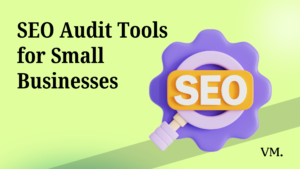How do I get strong community engagement backlinks? I have always asked myself this question.
Building a strong online presence involves a multifaceted approach. While there are several tactics you can implement to reach new customers, it always comes down to authority for both search engines and consumers.
You work tirelessly to provide great content, products, and services, but if no one knows you exist, then does it even matter?
Of course, you already know the importance of what you do, but convincing Google of that sometimes takes more effort, especially if you are in a highly competitive space. It is not just about keyword stuffing anymore; in fact, that can actually hurt you in the long run if done improperly.
This is where a well-rounded approach that emphasizes quality and community engagement backlinks can really boost your influence.
Now you may be wondering to yourself: How do you even get people to link back to my site, and why would they even want to?
Sometimes you have to give to get. Let’s look at some local link building strategies you can implement right away to build more community engagement backlinks.
Building Quality Content that Attracts Backlinks
Before you can get people to link to you, you need to give them a reason. High-quality backlinks, engaging, and informative content is something people genuinely find helpful, interesting, or entertaining (or better yet: all three.).
Not sure what kind of content your audience is interested in? Take a look at what some of your competitors are doing. Even better: ask your target audience.
Engaging with SEO Communities and Forums
Engaging in online communities and forums can rapport and be a goldmine for building backlinks local. However, you can’t just appear in an SEO community and expect others to be impressed.
Adding value to the conversation by being personable, providing helpful information, and offering insightful tips and tricks can build your reputation. This lets others see you are there for the right reasons.
A word of caution: resist the temptation to promote yourself every chance you get, as it could end up turning people off. Instead, focus on developing genuine relationships, sharing insightful content, and providing a different perspective from other members.
Slack communities offer a diverse pool of marketers, from different specialties within SEO, to engage with. It also allows you to stay in the loop regarding current strategies because, as you may already know, things change constantly.
Take a look at Whitespark’s Local Search Ranking Factors Report, which shows that Google changed their algorithms 729 times in 2022. Crazy, right? While it sounds daunting to keep up with Google, joining communities like this can make a difference.
Leveraging HARO to Become a Source
Becoming a source for reporters is easier than you think, thanks to Help a Reporter Out (HARO) inquiries. This platform connects those seeking information for upcoming blog posts or articles with subject matter experts like you.
Think about it: being quoted as an expert in any publication is great PR. It shows your authority and builds consumer trust. If the article is for a website, chances are it also gives you a quality backlink.
That said, even if you only get mentioned and no backlink, you’re building brand recognition with a new audience, which can sometimes be even better.
Niche Directories
Getting listed on relevant directories is another guest blogging content strategy. However, many general directories can have monthly or even yearly fees, so be sure to read their terms before making any assumptions.
Although they can get pricey for certain websites, they may be a worthwhile option if your target audience hangs out there. Take the niche directory Therapy for Latinx. The fee for this directory comes in at $19 per month or $140 annually.
Or what about Therapy for Black Girls, which focuses specifically on helping women of color? They understand the unique needs and concerns of their niche. Of course, there are other free therapist directories, such as Good Therapy.
Joining niche directories helps you connect with your people in a way that many mainstream options don’t. This gives your practice an air of legitimacy that can make all the difference when folks are looking for your unique services.
Utilizing Nofollow Backlinks Strategically
Although Nofollow backlinks don’t carry as much weight as a Dofollow link for ranking, they can still be worthwhile because they help bring awareness. Think of Dofollow links like telling a friend you love a new song.
A nofollow link would be where you think the song is okay, so you mention it. In both situations, you are potentially getting the word out. Inbound links are still extremely valuable.
Did you know Semrush, a well-known SEO Tool suite analyzed over 28,000 domains? It was over a 13-month period, and they found that 92.3 percent of websites that were in the top 100 ranking positions had at least a single backlink to their domain. That’s a compelling reason to pay attention to any inbound link opportunities.
The nofollow tag came out in September 2005 because Google started to get complaints from website owners regarding things like comment spam.
My Summary
Obtaining quality community engagement backlinks should be at the forefront of your SEO Strategy.
From connecting in a meaningful way, getting listed on industry-specific directories, providing high-value content, and utilizing various community-building strategies, you’ll start seeing traction.
While you work on gaining a higher level of authority, don’t overlook those nofollow backlink opportunities – after all – it’s all about engagement. With consistency and by remaining laser-focused on providing value to your readers, those community engagement backlinks will increase organically and your influence will be sure to climb.
FAQs about Community Engagement Backlinks
What are community backlinks?
Community backlinks are links from websites or online platforms that center around a specific community, interest, or niche. They typically originate from forums, social media groups, online directories, or other websites where individuals with shared interests interact and share information.
Unlike backlinks from general or unrelated websites, community backlinks carry more weight because they indicate relevance and credibility within a particular niche or industry. These links signal to search engines that your content is valuable and trustworthy within a specific community, enhancing your website’s authority and improving its search engine ranking.
What are the three types of backlinks?
Backlinks are generally categorized into three main types: Sponsored Links, Nofollow Links, and Dofollow Links. Sponsored links are paid for by companies to drive referral traffic to their websites and increase brand visibility.
Nofollow links, on the other hand, don’t pass authority to the linked website and are often used in situations such as blog comments or forums. Lastly, Dofollow links are considered the most valuable type of backlink as they directly pass on authority to the linked website. Dofollow backlinks matter.
What are outreach backlinks?
Outreach for quality backlinks are created through directly contacting website owners, editors, or webmasters. With this strategy, the goal is to build relationships and explore backlink placement opportunities by showcasing the value of your content, product, or service. Essentially, you are looking to get them to link back to you in a blog post, article, or website.
This method of building links usually requires creating valuable, high-quality content that others see as a credible and authoritative resource. Building this type of professional relationship is generally reciprocated over time, which then allows for more exposure, organic traffic, brand awareness, and better local SEO ranking.
Are backlinks still important in 2024?
Yes, despite advancements in SEO, backlinks are crucial for ranking in 2024. But, you knew I would say that, right? Although their significance has evolved over the years, they remain an essential factor that helps Google and other Search Engines determine a websites credibility, relevance and overall ranking ability.
It goes back to the idea of “votes of confidence,” signaling that your site and content offer value. This then strengthens the trust and authority in what you have to say which makes it a major aspect of organic traffic growth.



